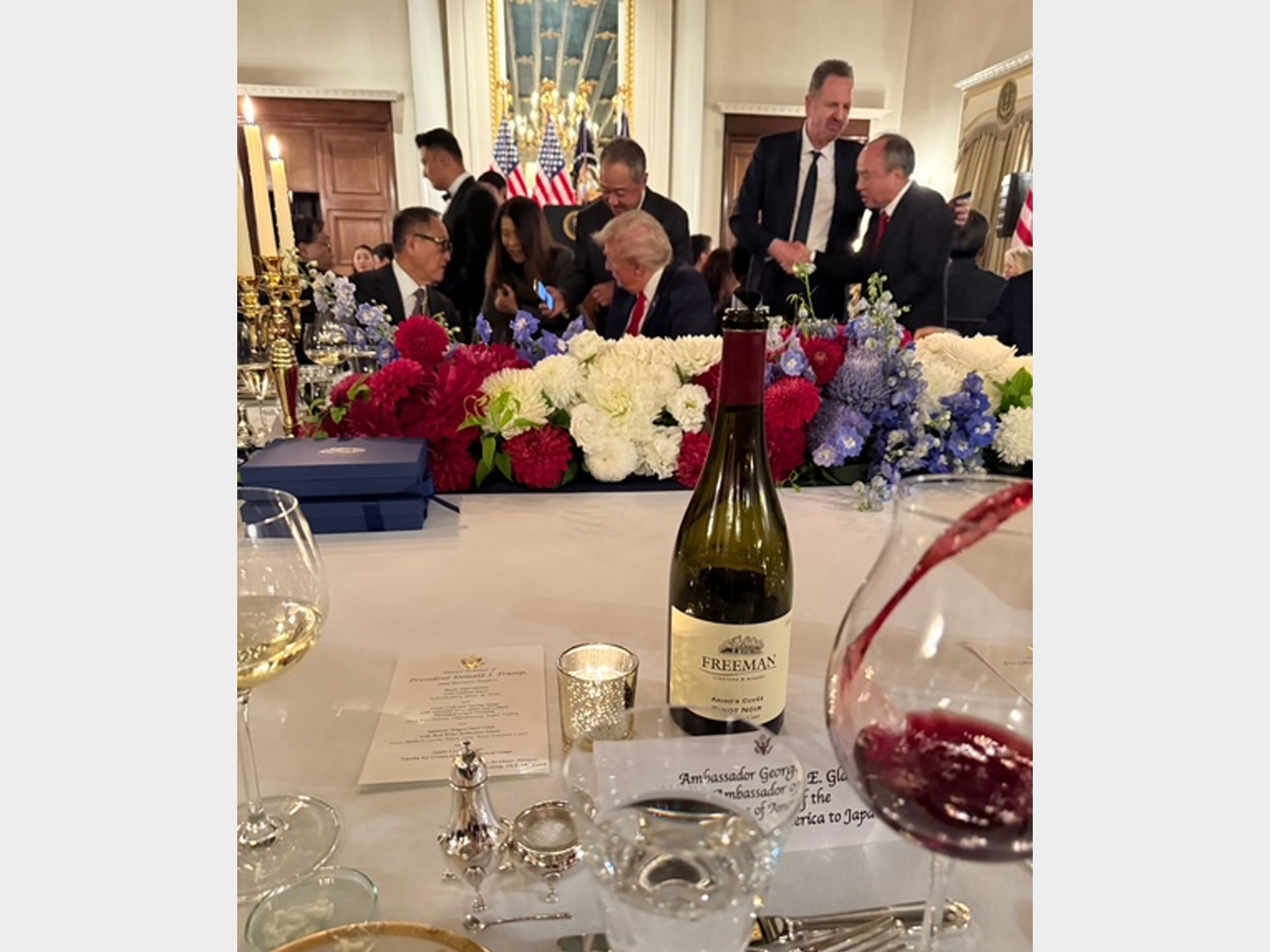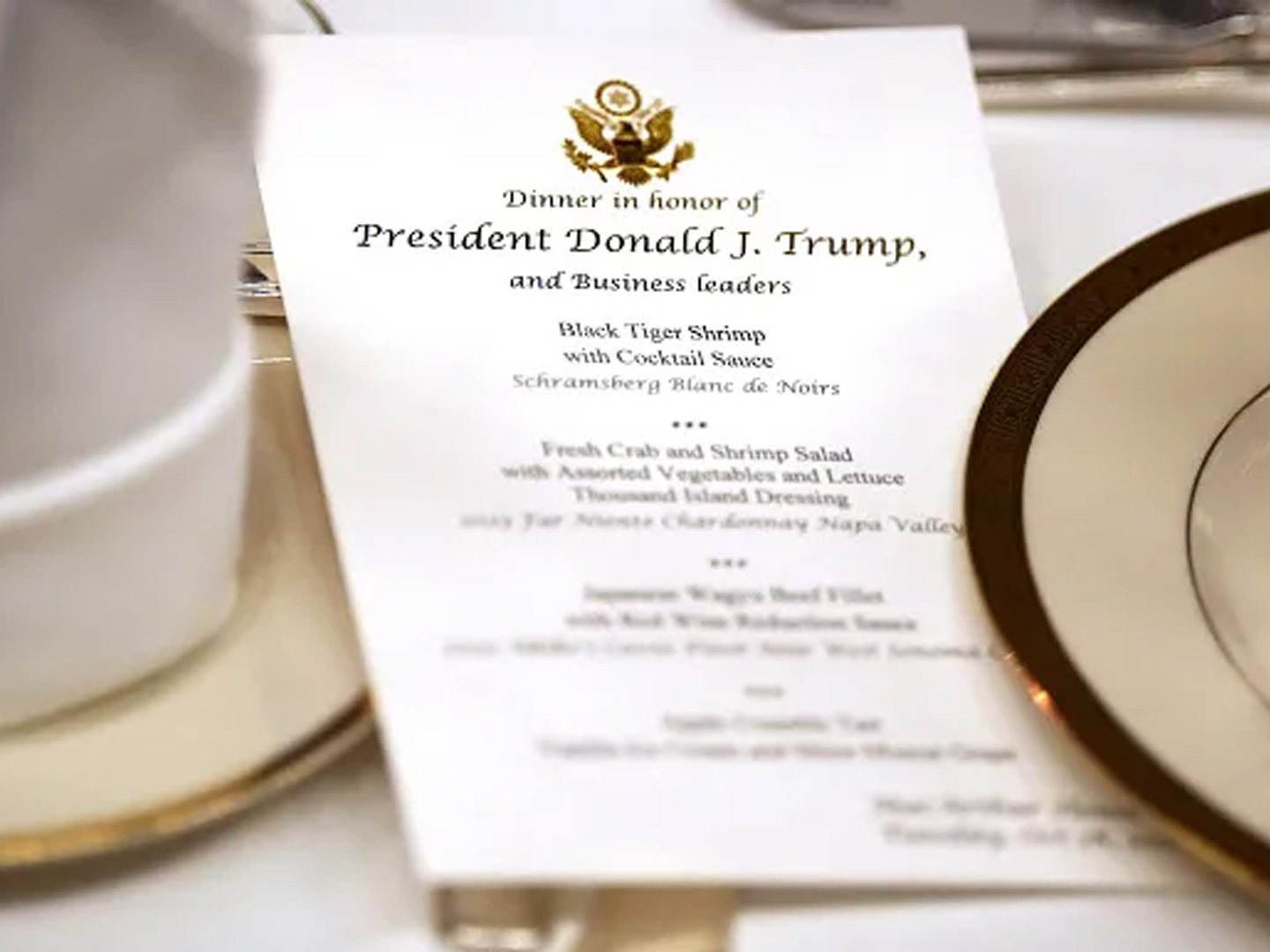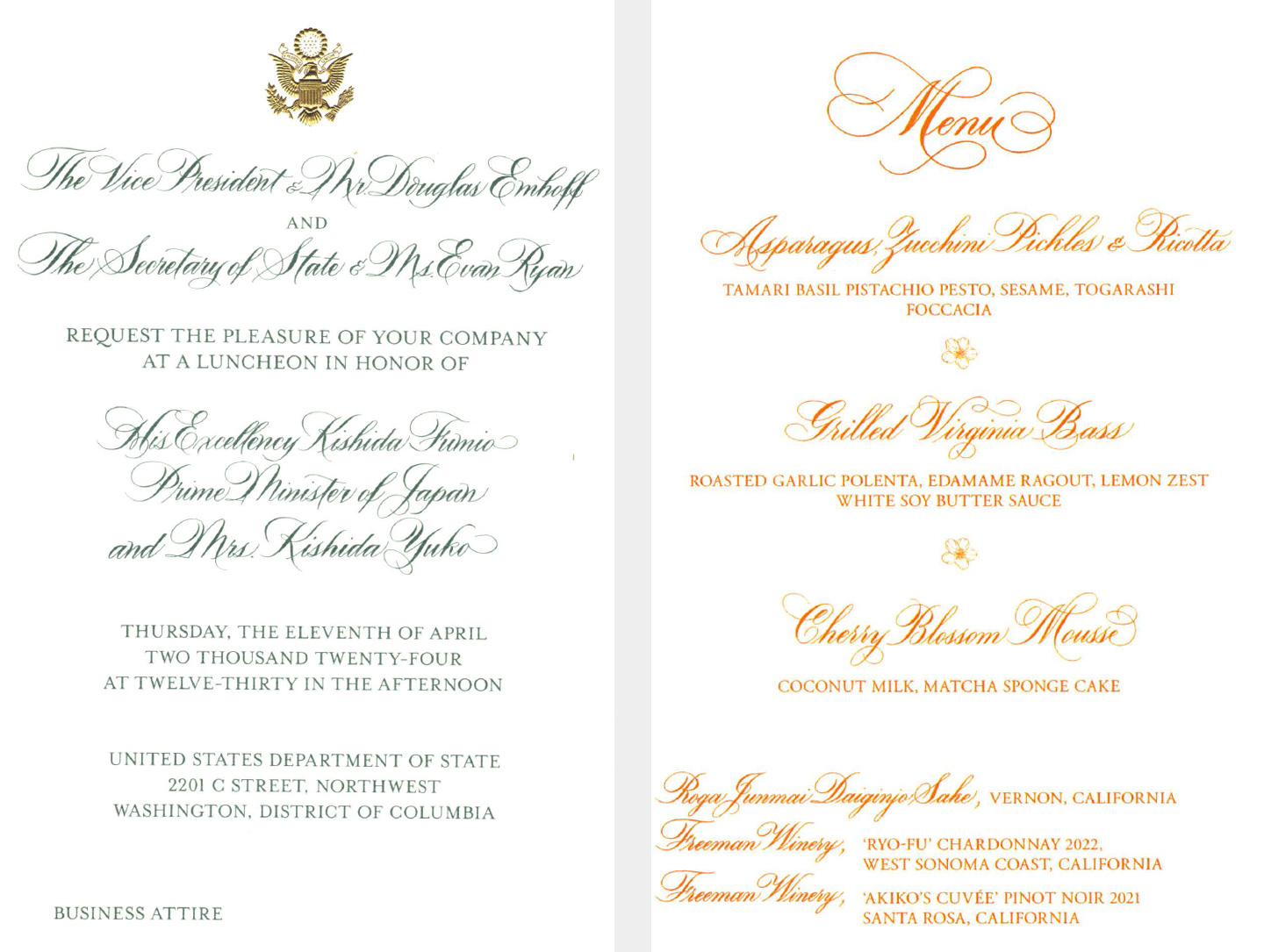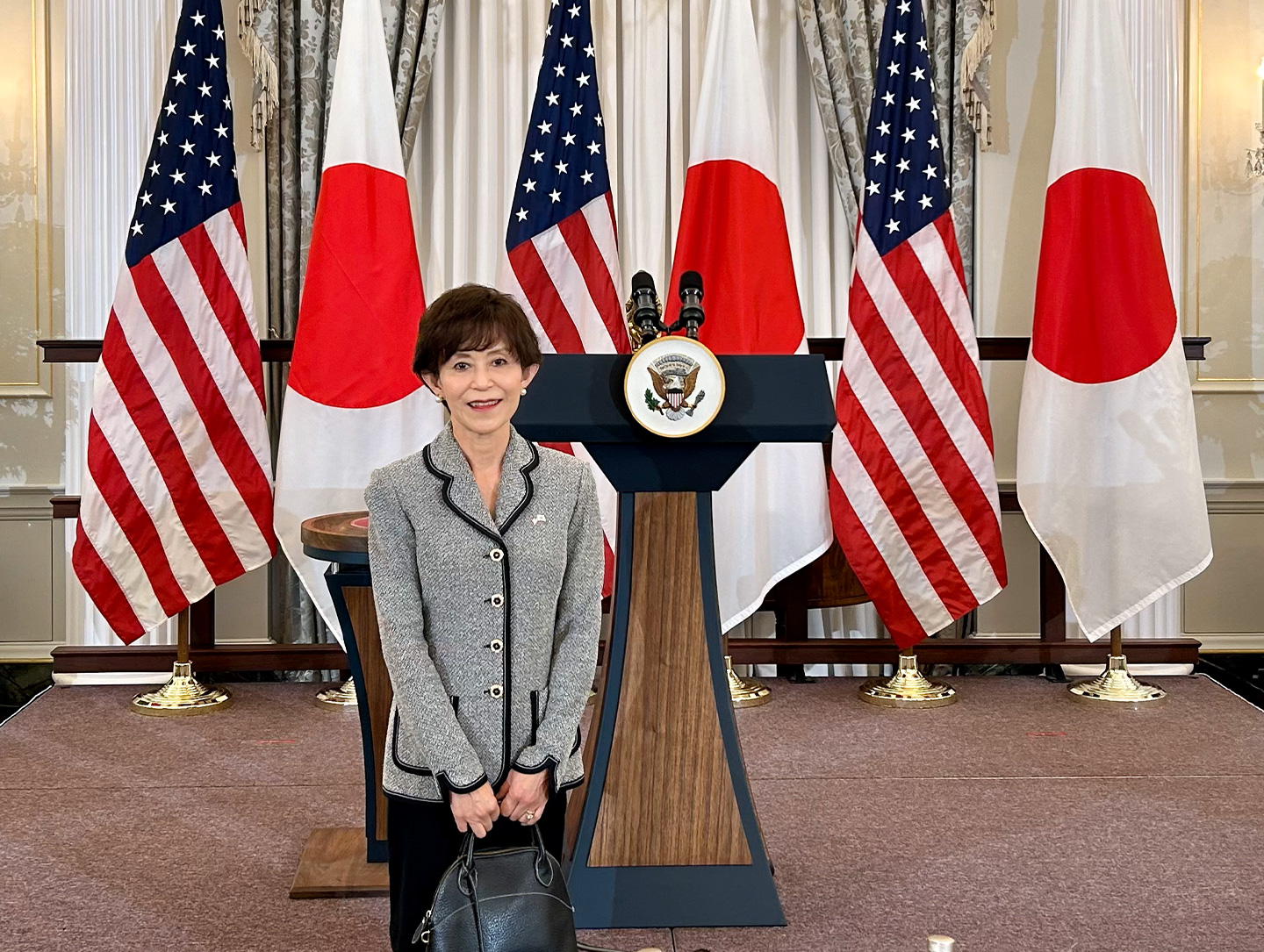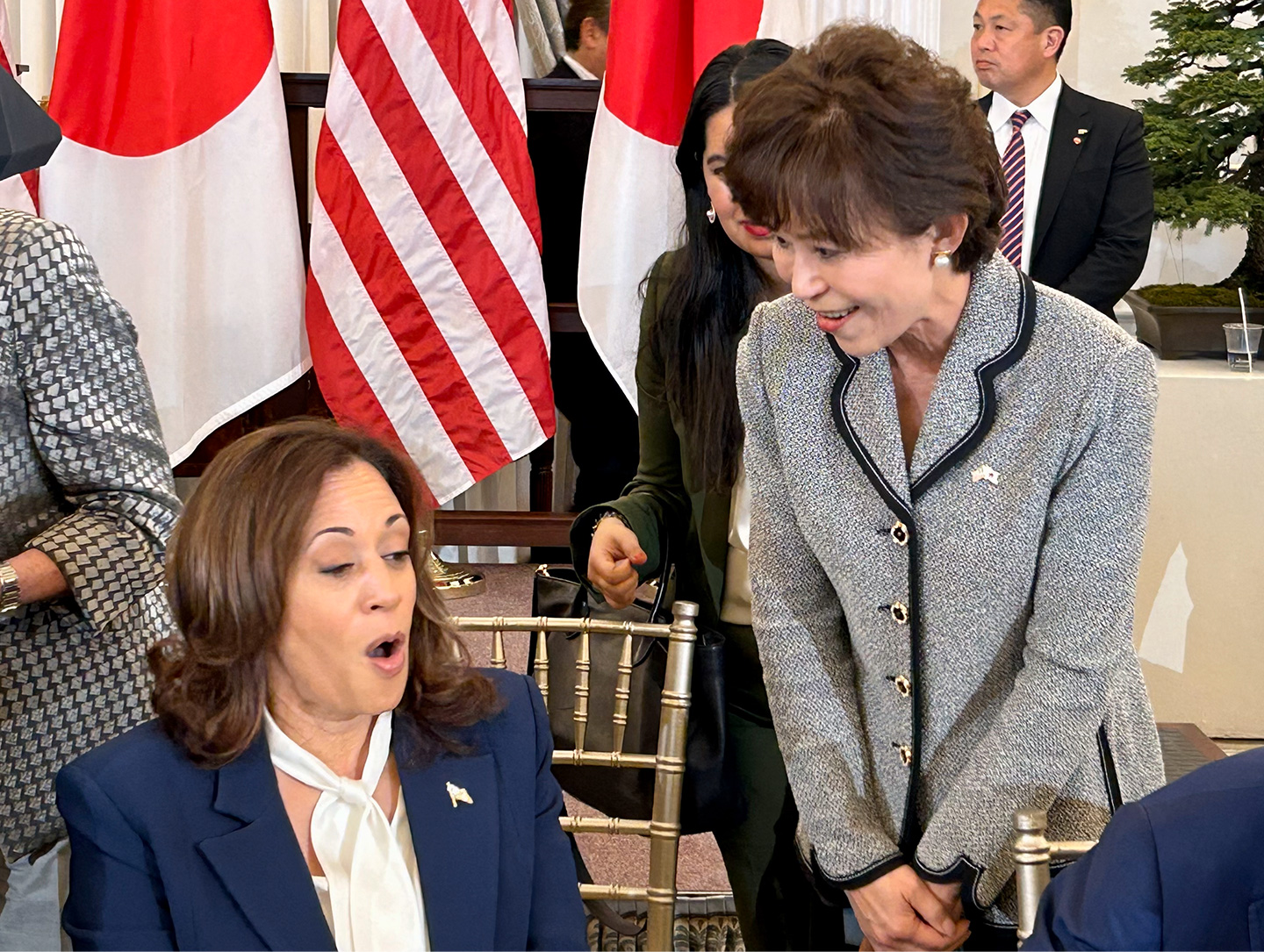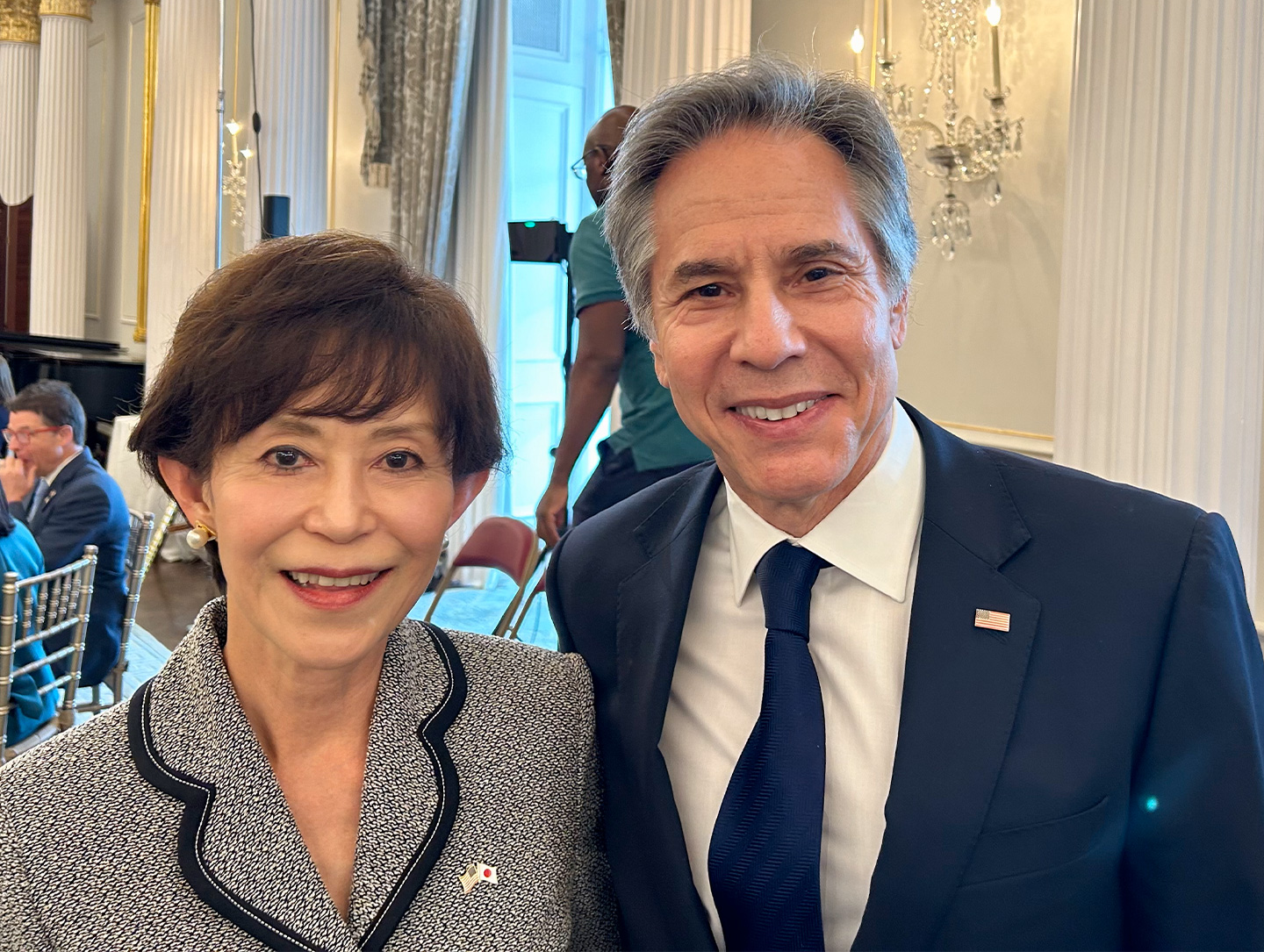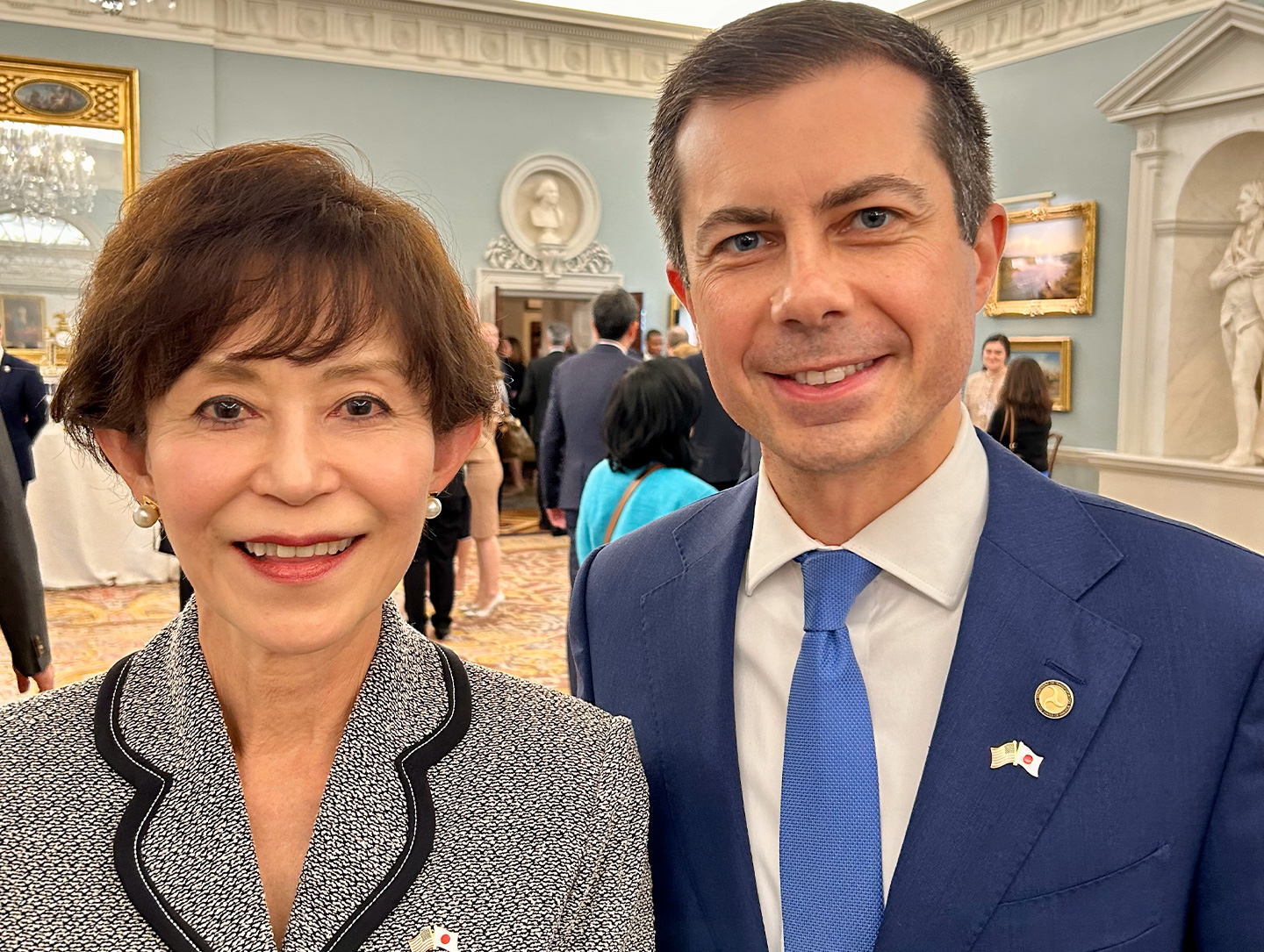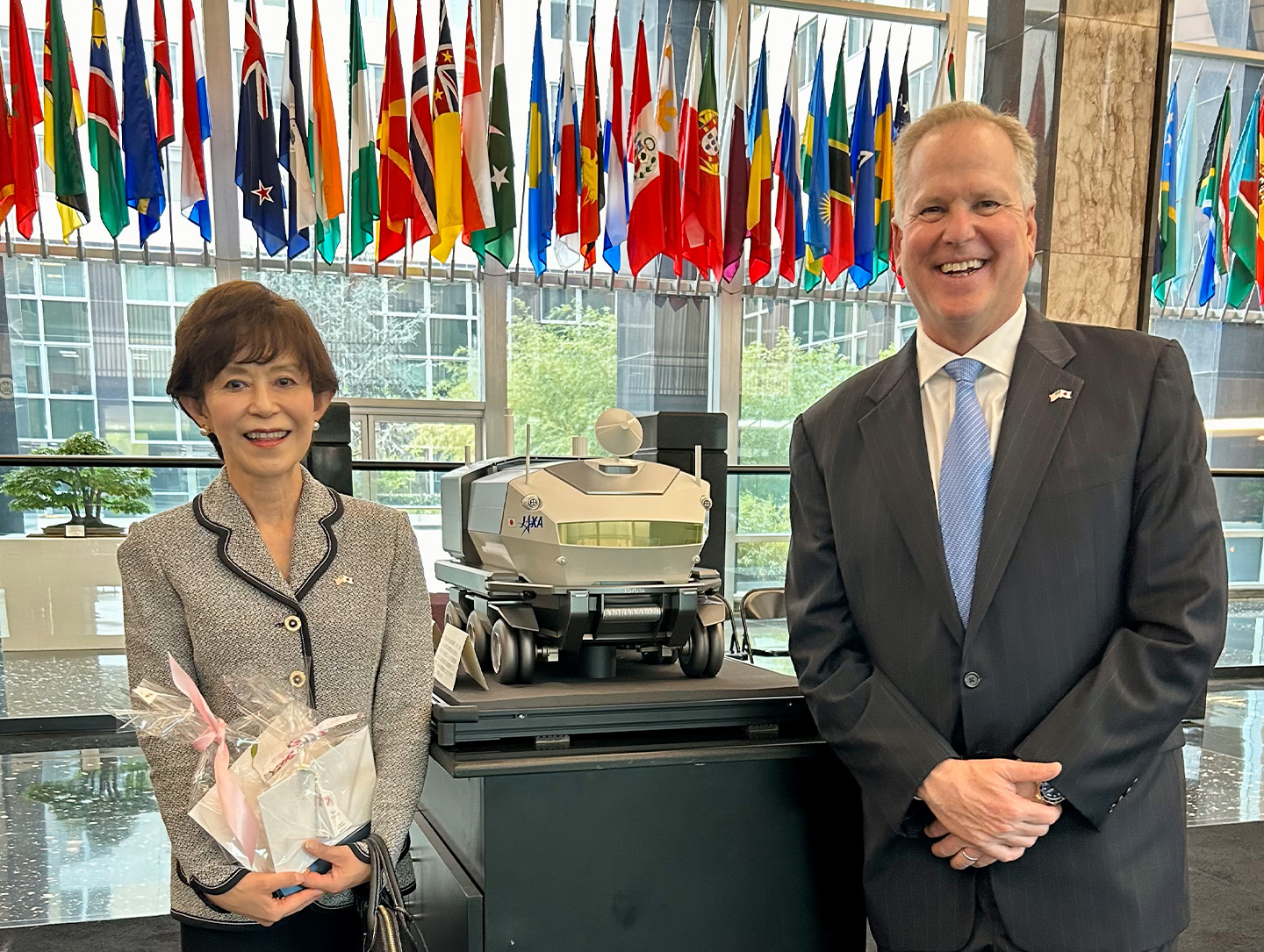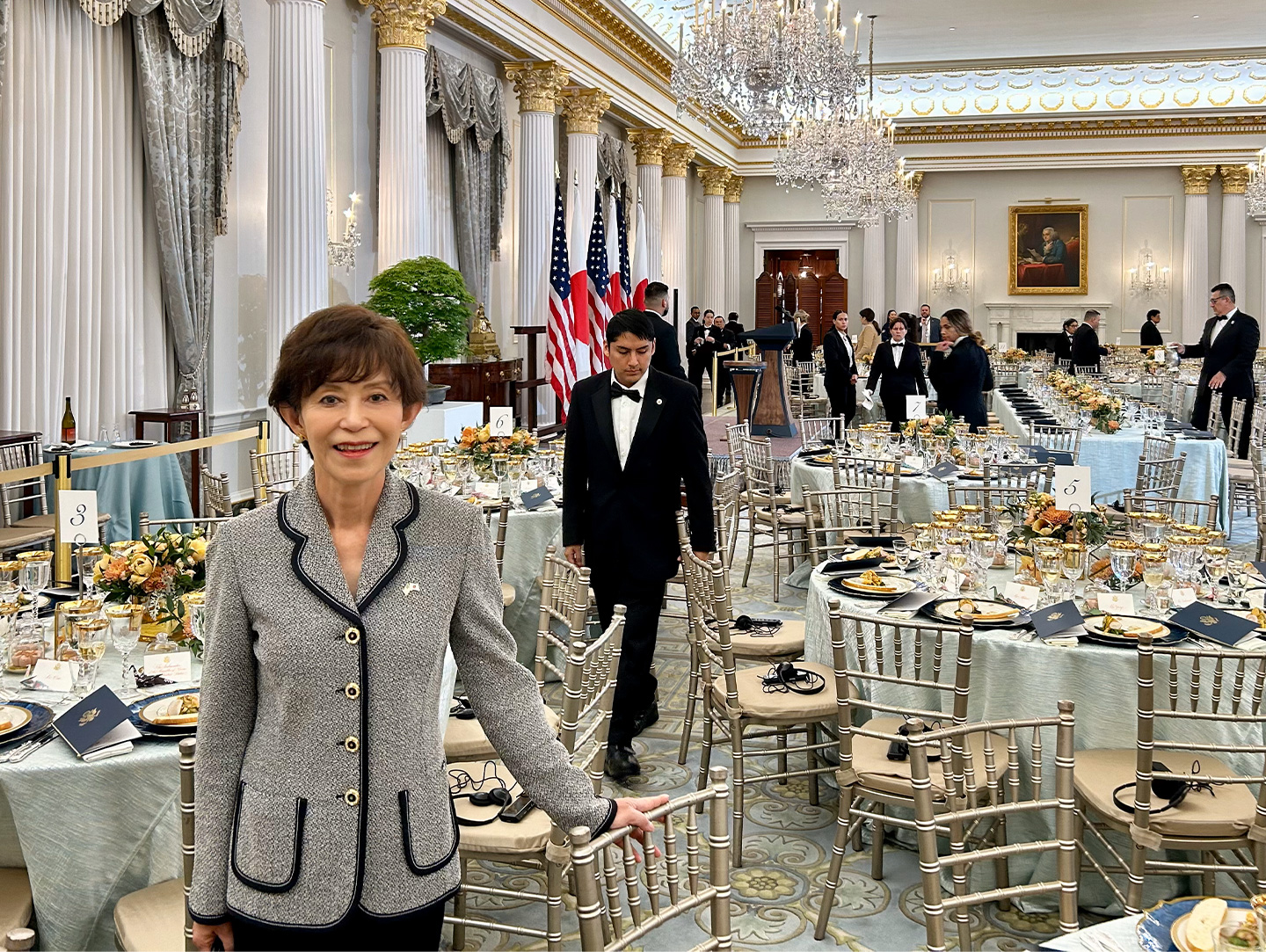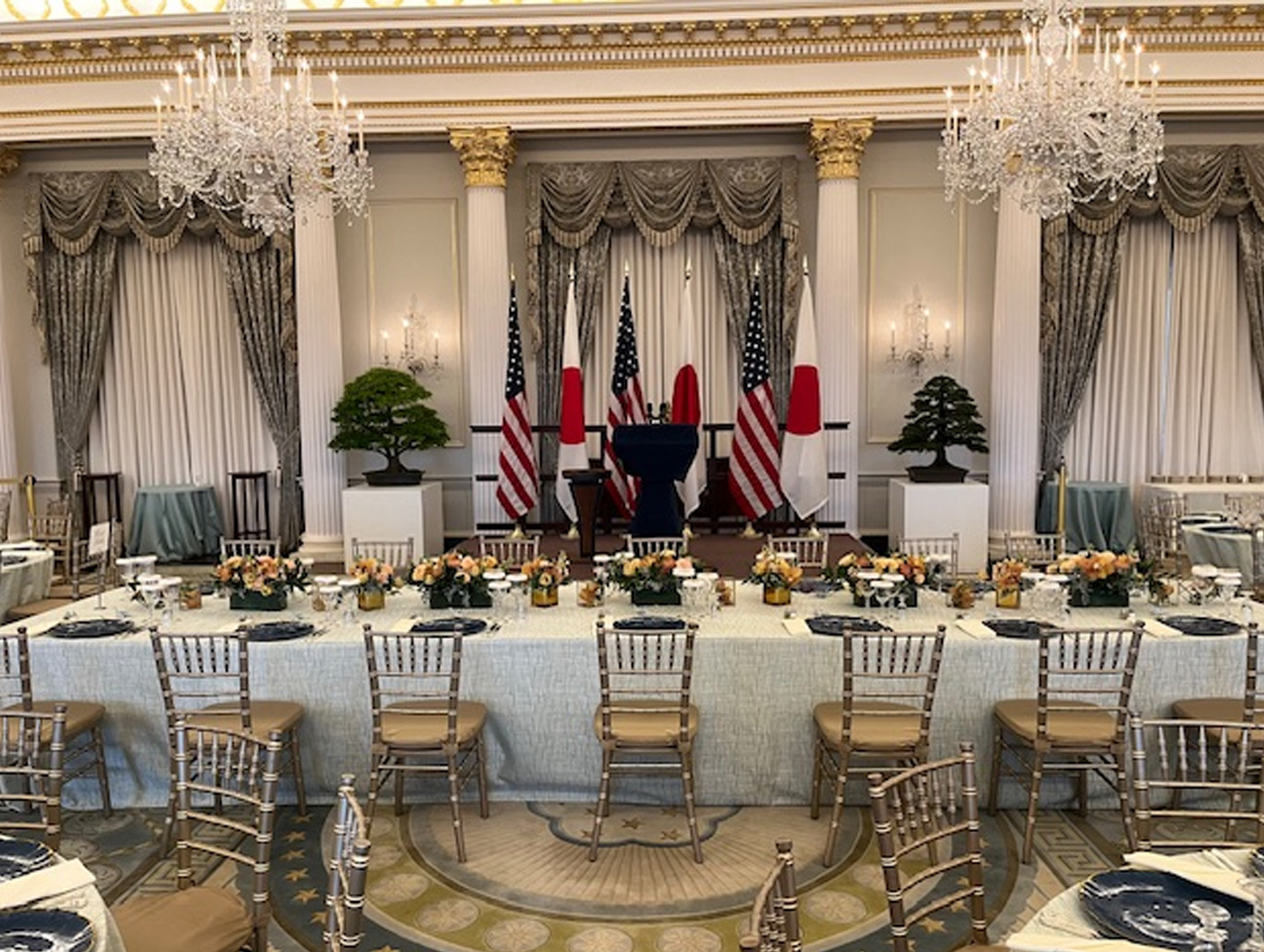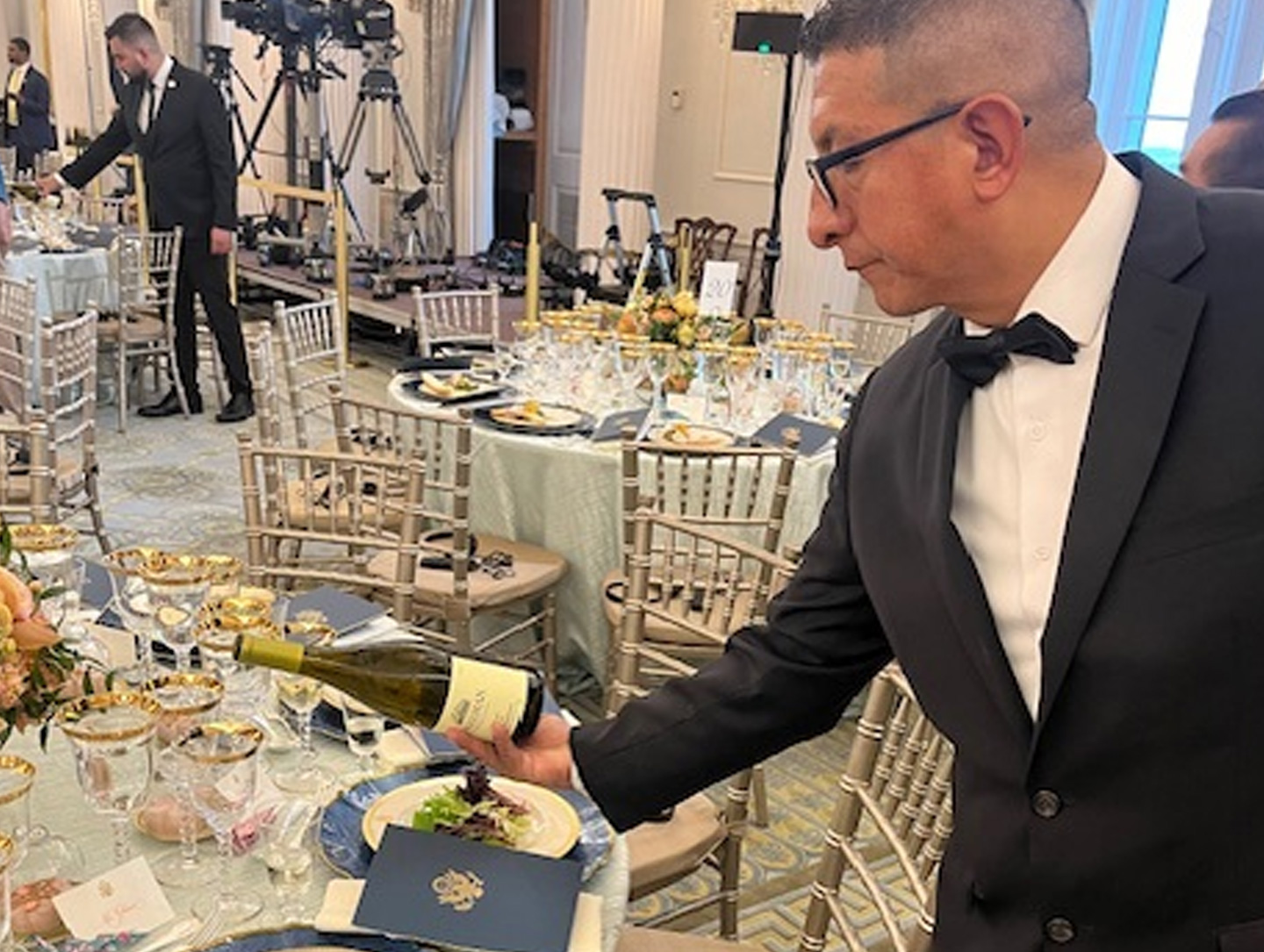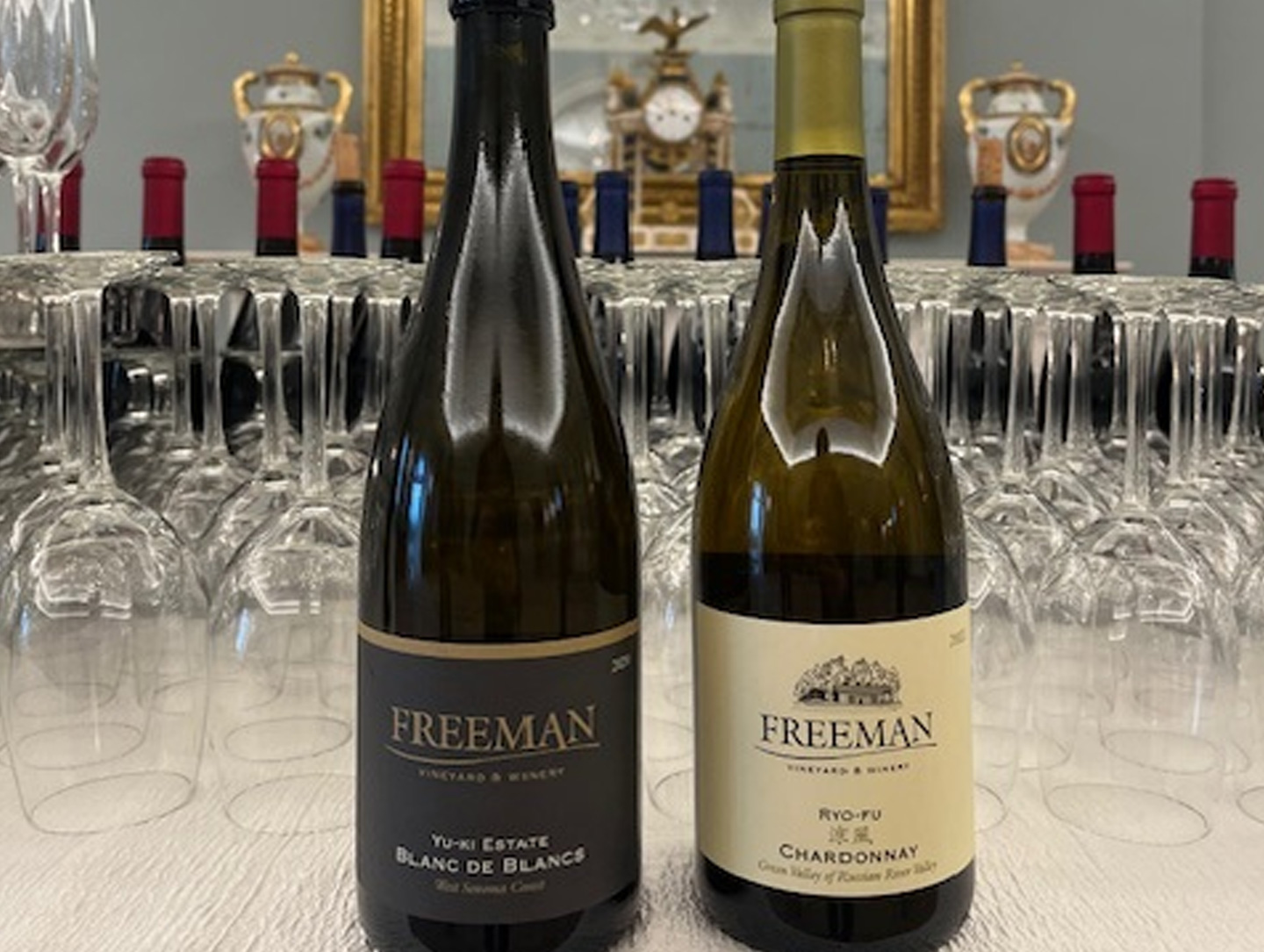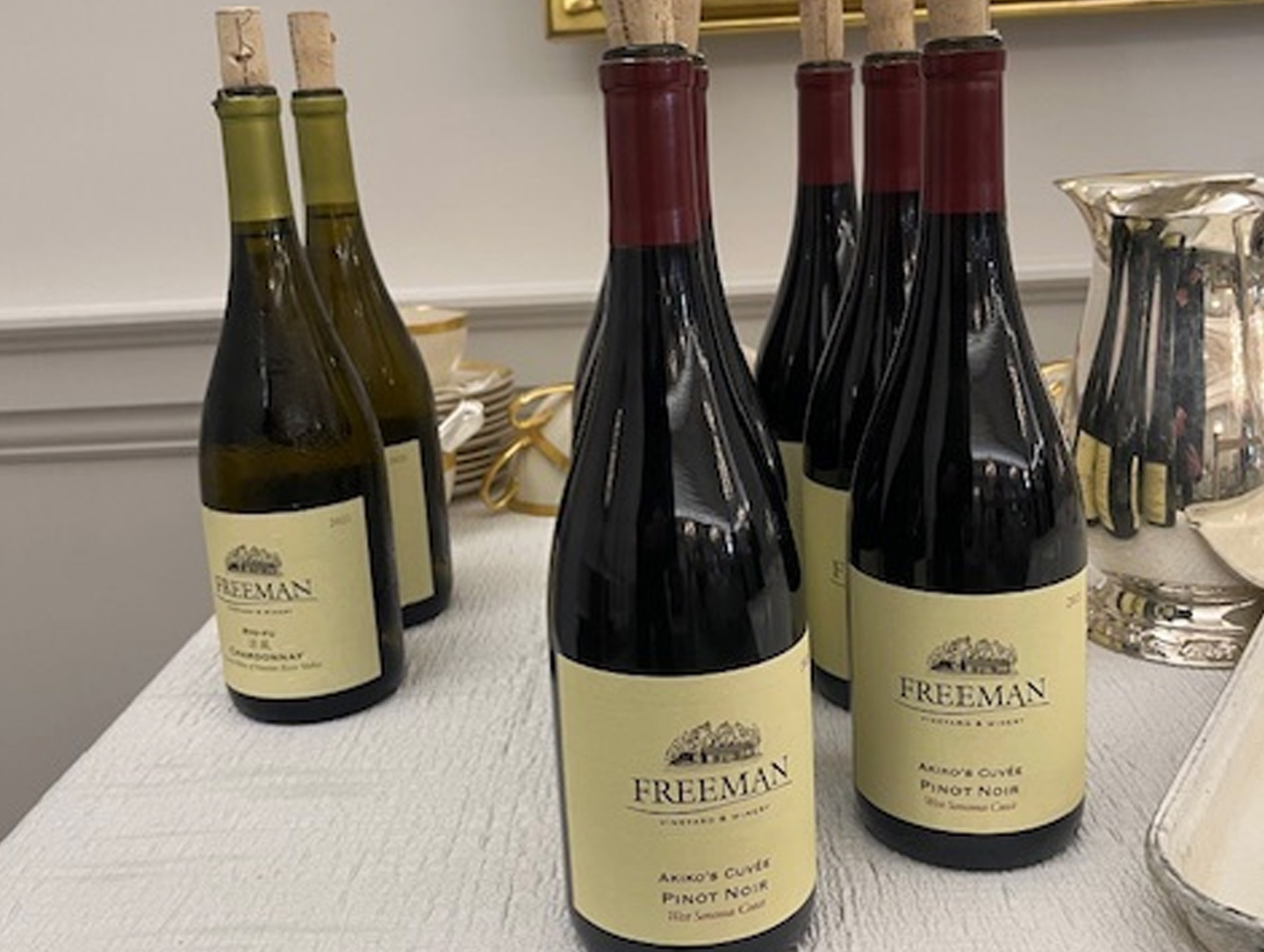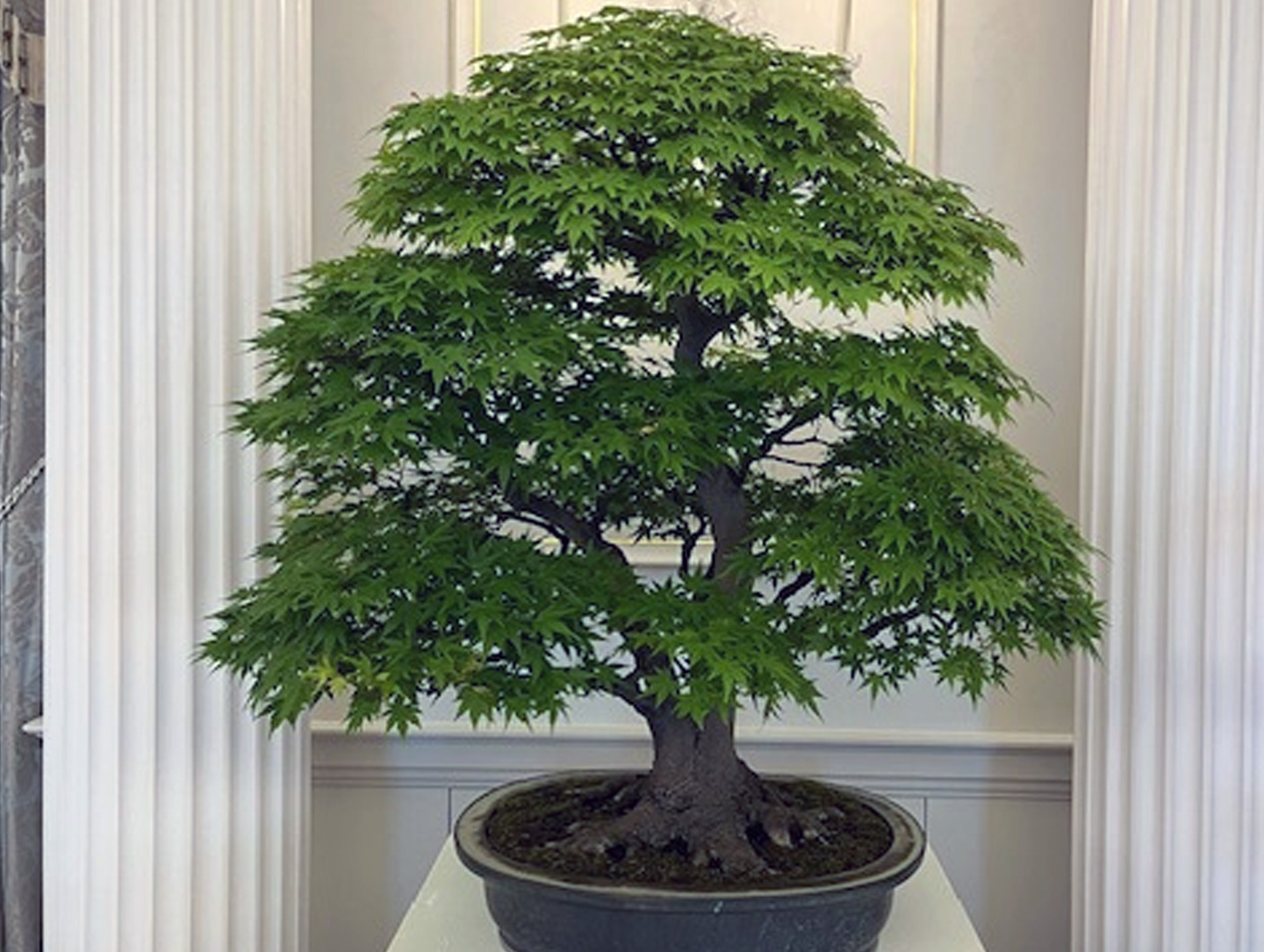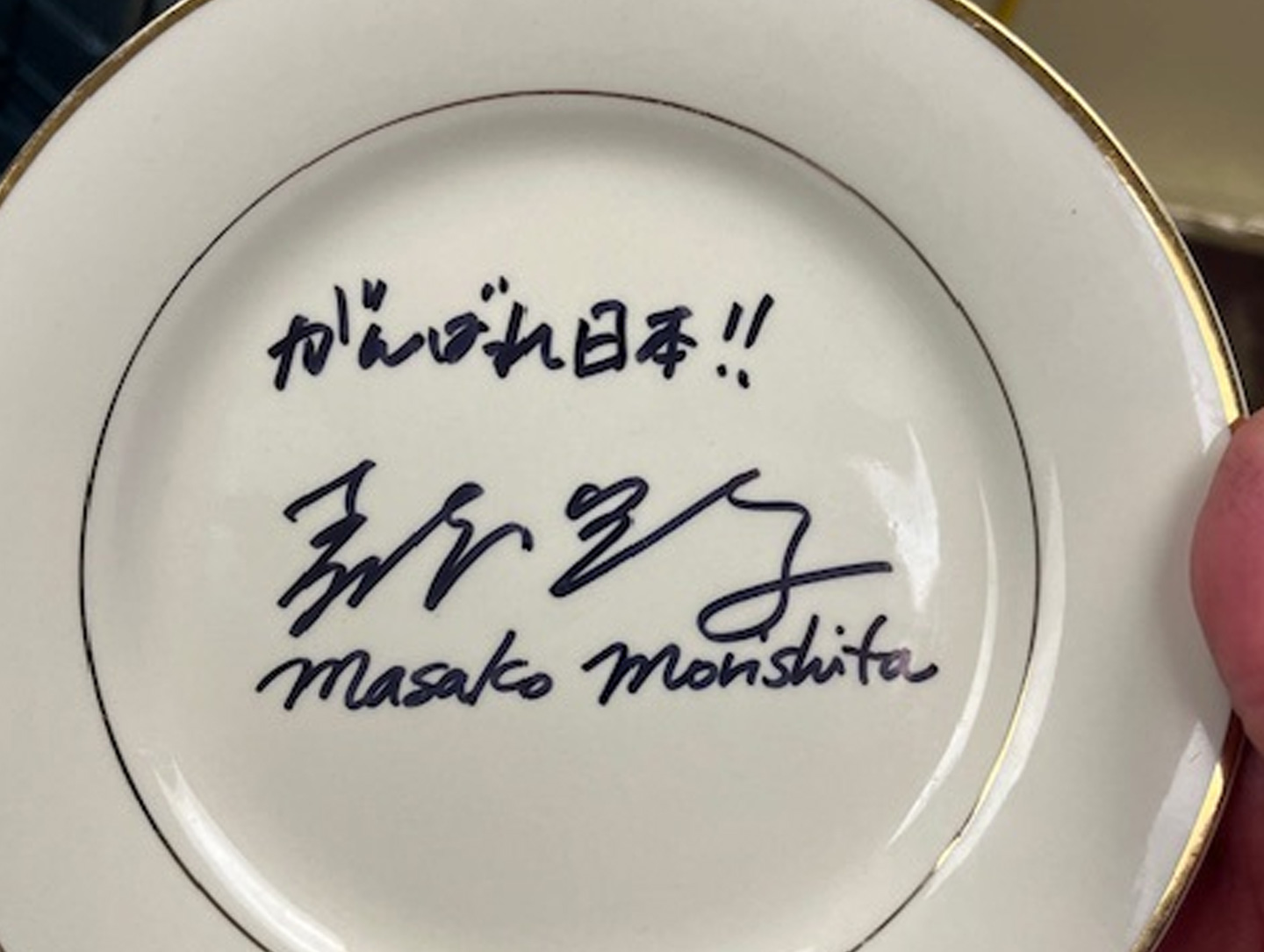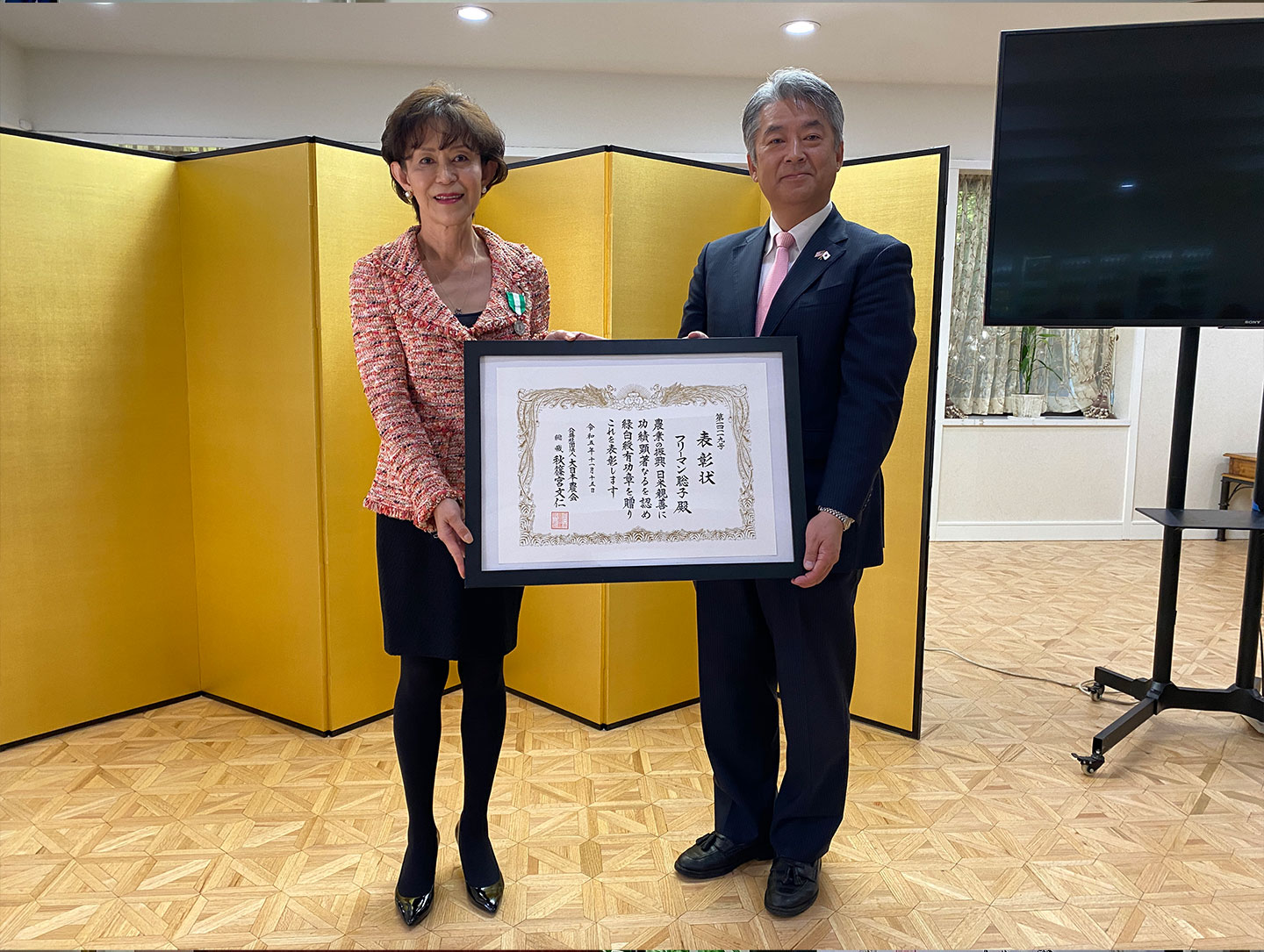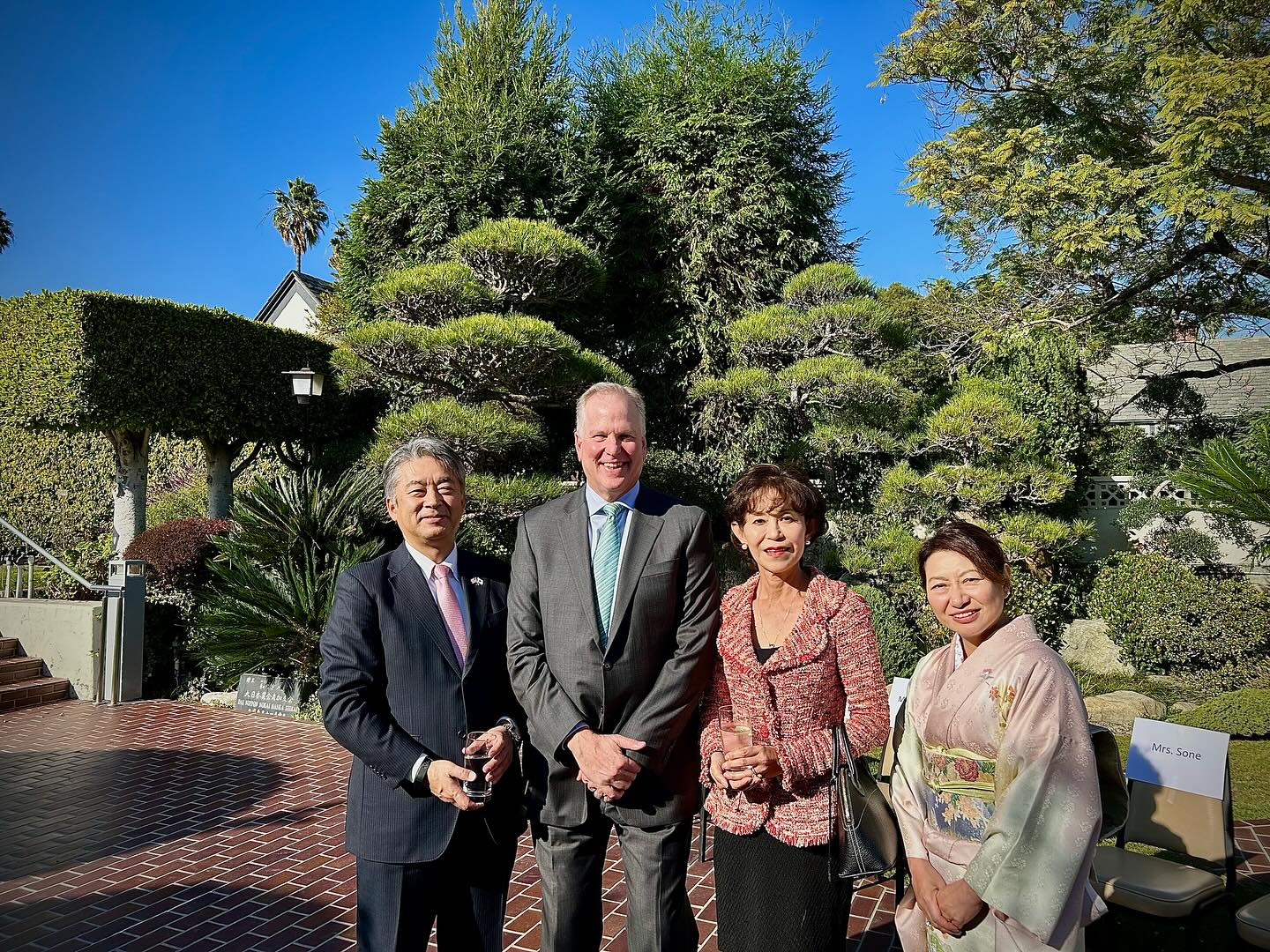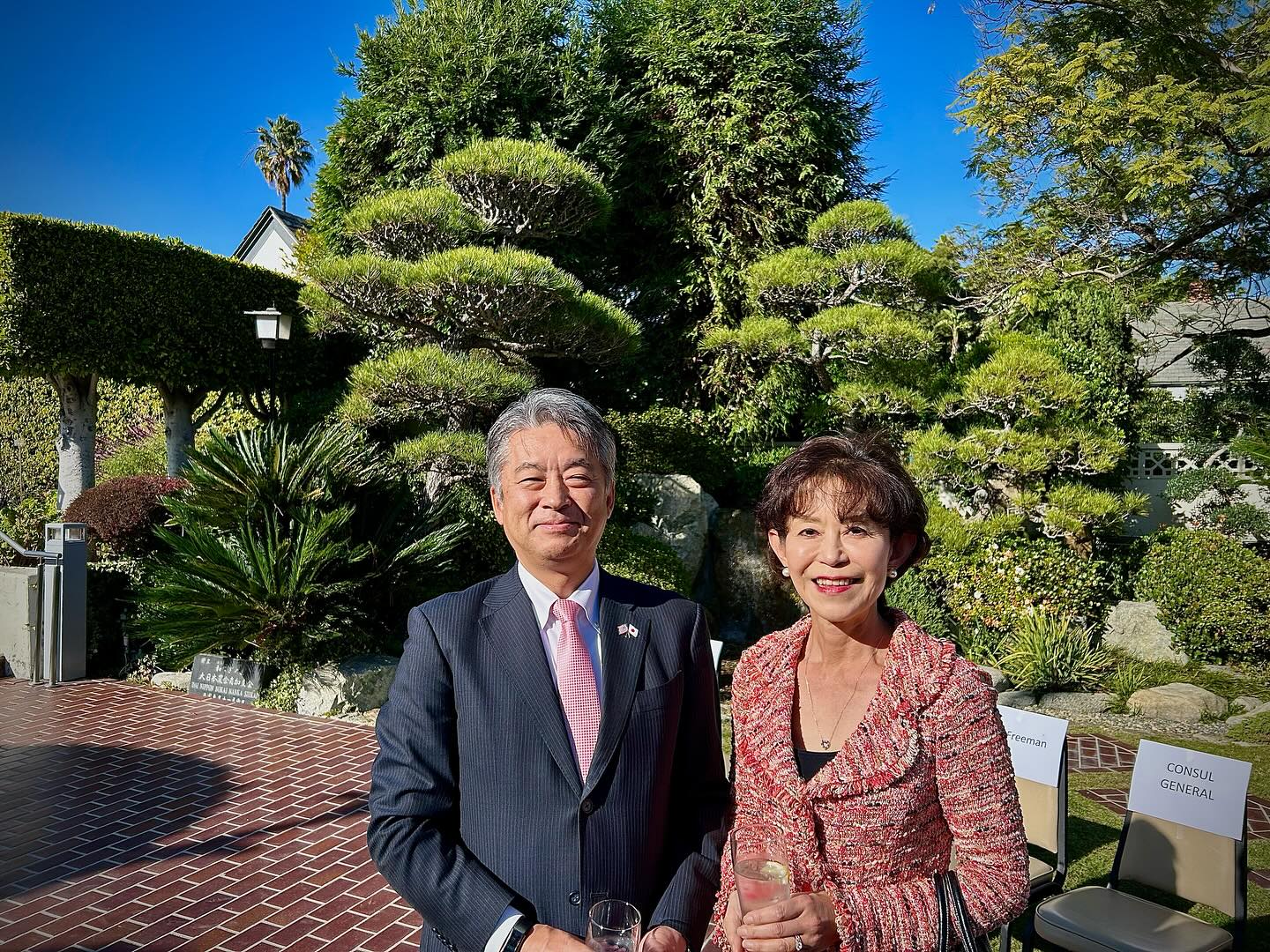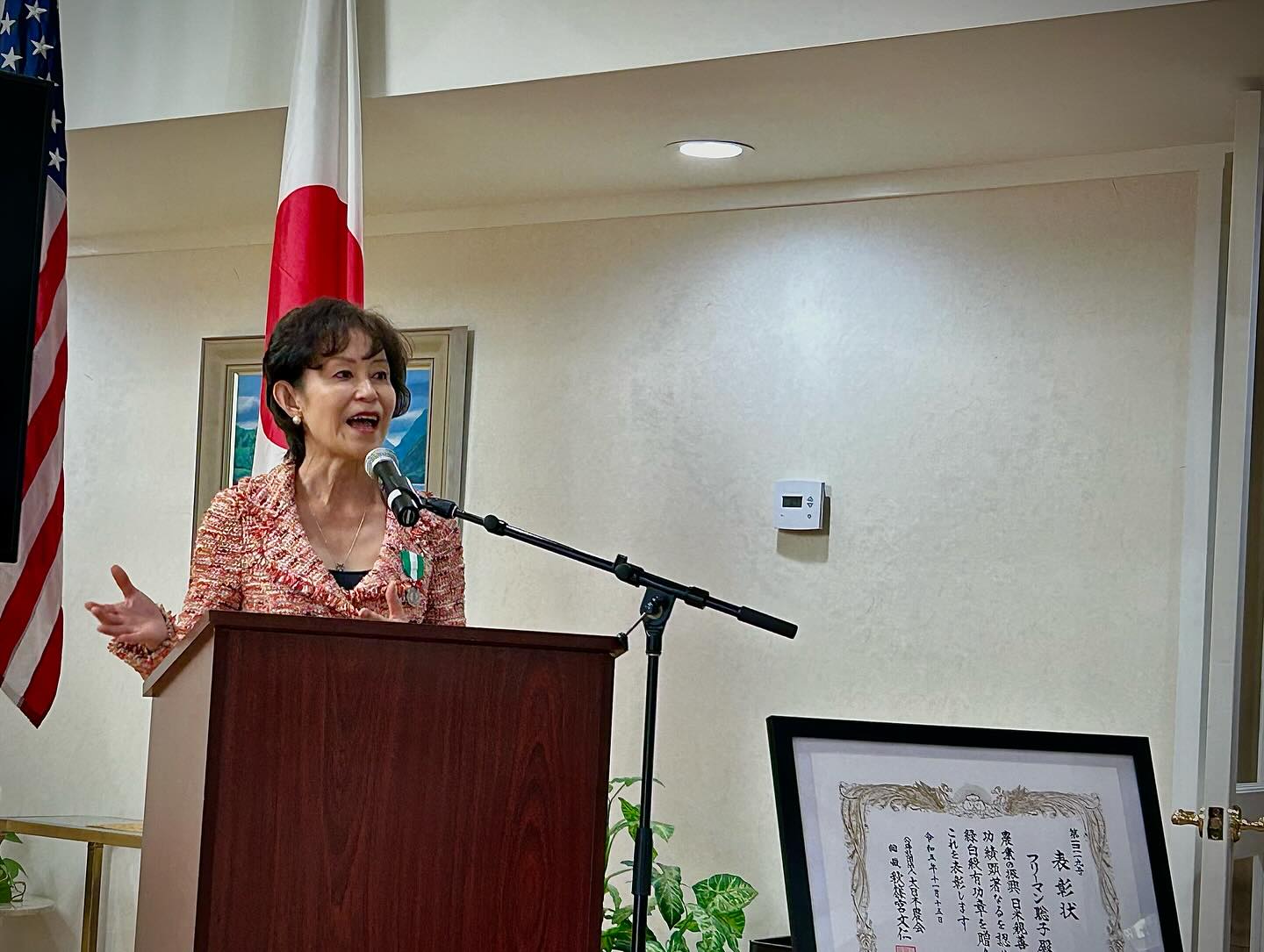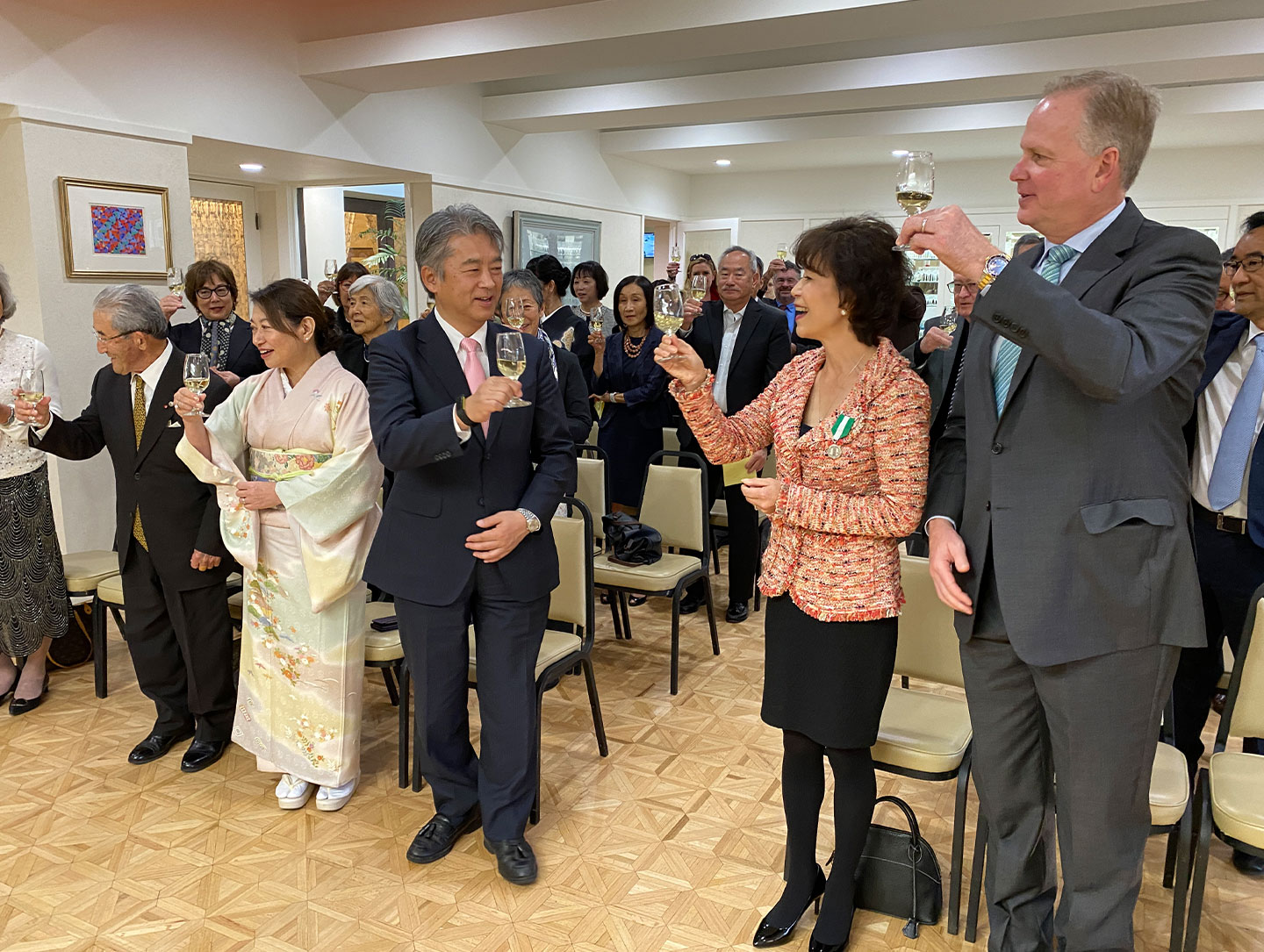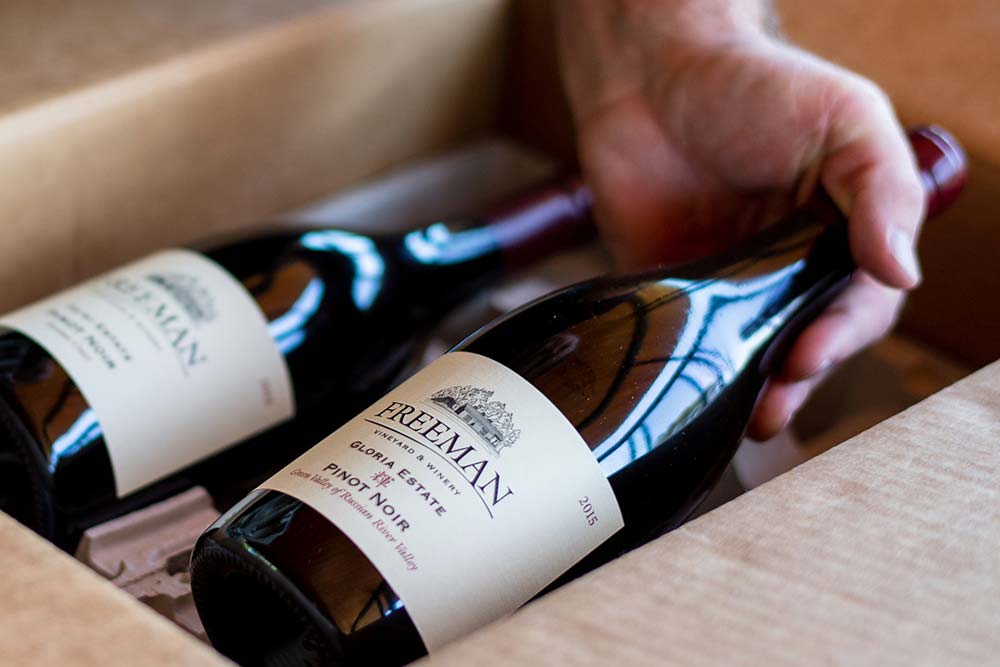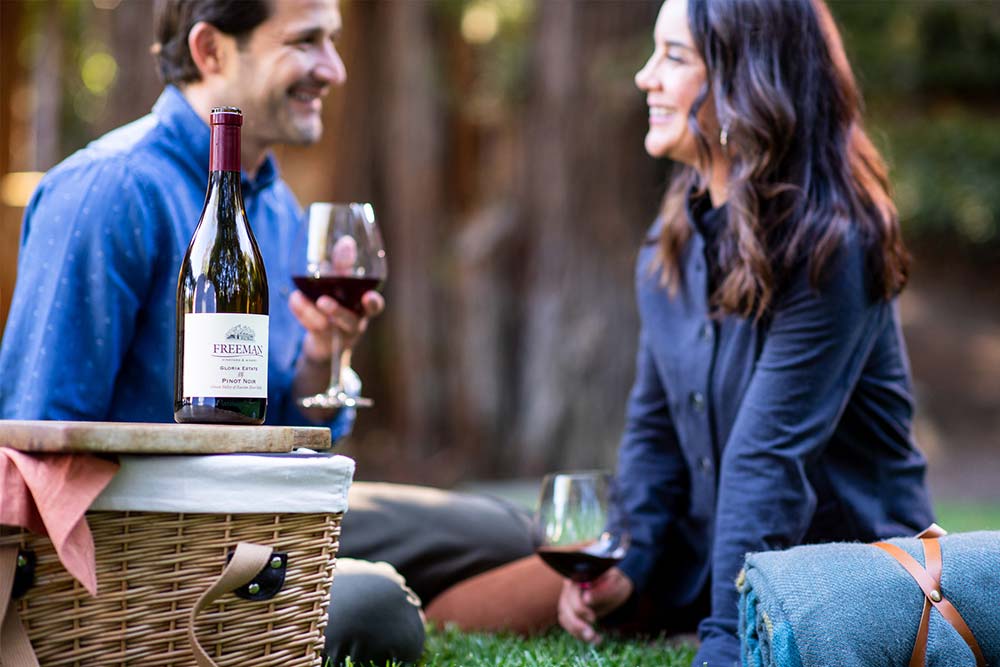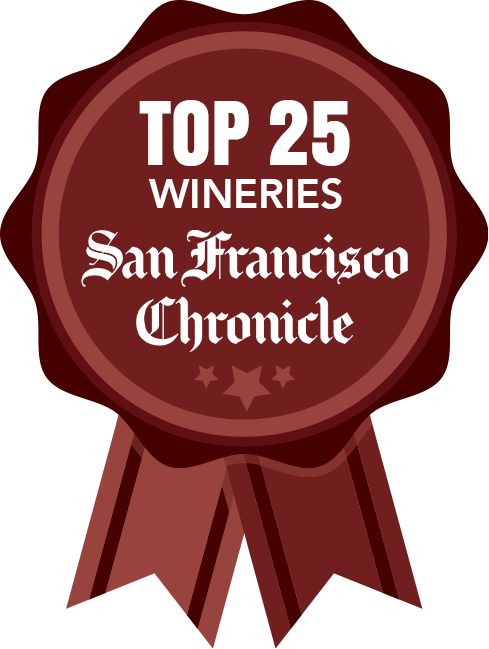Highlights
Freeman Pinot Noir Featured at U.S. Embassy Presidential Dinner in Japan

Freeman Vineyard & Winery’s 2022 Akiko’s Cuvée Pinot Noir was among three California wines selected for a presidential dinner at the U.S. Embassy in Tokyo during President Donald Trump’s state visit to Japan. Hosted by newly elected Prime Minister Sanae Takaichi, the evening also featured wines from Schramsberg Vineyards and Far Niente.
U.S. Ambassador George Glass chose the wines following an extensive tasting of California selections. For Akiko Freeman, who was born in Japan, the honor adds to a growing list of international recognitions. She previously received the Green-White Achievement Award for agricultural excellence from the Agricultural Society of Japan, and her wines have been served at diplomatic events in Washington, D.C., including a luncheon hosted by former Vice President Kamala Harris.
Read the full article on The Press Democrat
Toast to International Ties: Freeman Wines Featured at State Department
On Thursday, April 11, 2024, we had the honor of presenting our wines during a luncheon at the State Department, hosted by Vice President Kamala Harris to celebrate the visit of Prime Minister Fumio Kishida of Japan. Esteemed attendees included Secretary of Transportation Pete Buttigieg and Secretary of State Anthony Blinken.
Featured wines were the 2022 Ryo-Fu West Sonoma Coast Chardonnay and the 2021 Akiko's Cuvee West Sonoma Coast Pinot Noir, both of which paired exquisitely with the seasonal menu, enhancing the culinary experience.
This prestigious event was not only a profound honor but also a testament to the deep cultural ties between the United States and Japan. We are grateful for the opportunity to contribute to such a significant occasion and look forward to fostering further connections through our shared appreciation for fine wine.
Historic Award for Akiko Freeman: The Green & White Medal for Agricultural Excellence
Akiko Freeman was recently honored with the Green & White Medal for Agricultural Excellence, becoming the first woman ever to receive this prestigious accolade. The ceremony, held at the Japanese Consul General’s residence in Los Angeles, recognized her for being the first Japanese winemaker with a wine served at the White House and her transformative approach to organic farming. Shinkichki Koyama, who presented the award, said of Akiko, “She worked very hard to achieve the best growing conditions on the property — irrigation, ensuring that the soil was well-drained and well-oxygenated — all with the long-term vision to produce better grapes under organic farming protocols.” Her efforts have significantly contributed to the agriculture sector, reinforcing Japan-USA relations. This milestone achievement underscores Akiko's pioneering role in the field.

We are honored that the White House featured our Ryo-fu Chardonnay at a recent State Dinner welcoming Japanese Prime Minister Shinzo Abe to the United States.
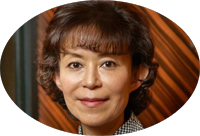
LE.PAN: The small Sonoma winery with Asian ambitions; “We don’t manipulate anything. We just try to grow the best fruit and bring out the best of it. That’s our philosophy.”
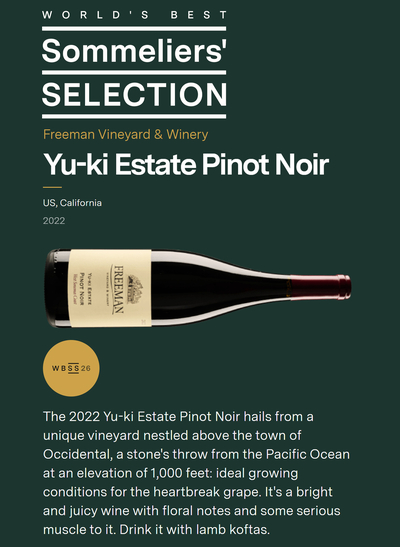
|
World's Best Sommeliers' Selection
Yu-ki Estate Pinot Noir Earns Back-to-Back Recognition from World’s Best Sommeliers’ Selection
February 2026
Freeman’s Yu-ki Estate Pinot Noir has once again been recognized by the World’s Best Sommeliers’ Selection, marking the second consecutive year the wine has received this honor. The 2022 vintage continues to showcase the distinctive character of our estate vineyard perched 1,000 feet above Occidental and shaped by its proximity to the Pacific Ocean. Bright and structured, with notes of rose petals, red cherry, spice, and coastal herbs, the wine reflects our commitment to site-driven Pinot Noir crafted with a gentle, Burgundian touch. |
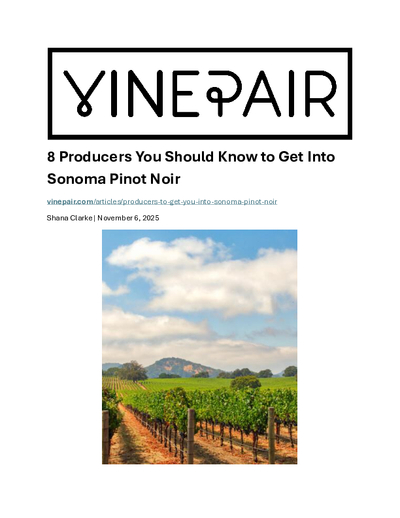
|
Vinepair
Freeman Named Among VinePair’s “8 Producers to Know” for Sonoma Pinot Noir
Freeman Winery is honored to be featured by VinePair as one of eight standout producers shaping the story of Sonoma Pinot Noir. Highlighting Akiko Freeman’s dedication to crafting elegant, cool-climate wines from the far western edge of the Russian River Valley, the article celebrates Freeman’s refined style, commitment to organic farming, and Akiko’s recognition with Japan’s Green & White Medal for Agricultural Excellence. |
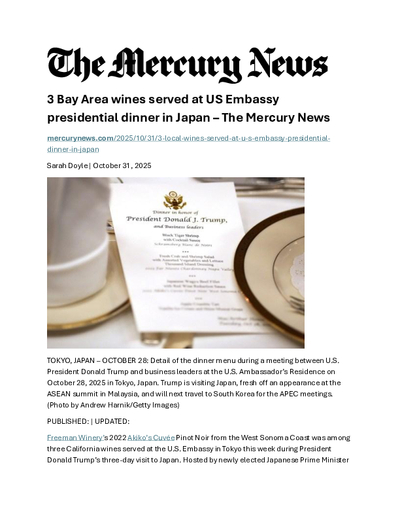
|
The Mercury News
Freeman Pinot Noir Featured at U.S. Embassy Presidential Dinner in Japan
Freeman Vineyard & Winery’s 2022 Akiko’s Cuvée Pinot Noir was among three California wines served at a presidential dinner hosted at the U.S. Embassy in Tokyo during President Donald Trump’s official visit to Japan. Selected by U.S. Ambassador George Glass following an extensive tasting of California wines, the bottle was poured alongside Schramsberg’s Blanc de Noirs and Far Niente’s Chardonnay. For Akiko Freeman, who was born in Japan and previously honored by the Agricultural Society of Japan for agricultural excellence, the occasion marks another international recognition of Freeman’s craftsmanship and Sonoma County’s global influence in Pinot Noir. |
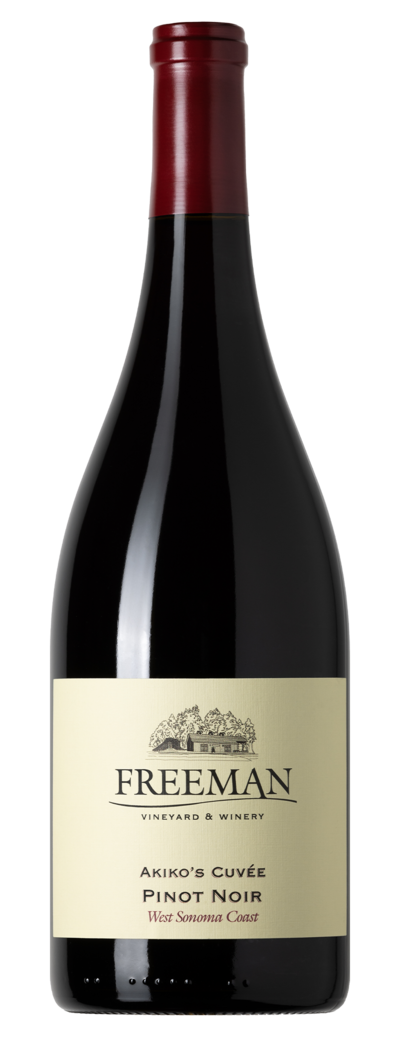
|
Freeman Vineyard & Winery
Freeman Wine Chosen for U.S. Embassy Dinner During Presidential Visit to JapanAkiko’s Cuvée Pinot Noir among three California wines selected for the Oct. 28 event Three California wines, including a Pinot Noir from Freeman Wines in Sebastopol, will be served at the United States Embassy in Tokyo next week during President Donald Trump’s three-day visit to Japan. The dinner, hosted by newly elected Japanese Prime Minister Sanae Takaichi, is set to take place on Oct. 28. Wines poured at the dinner will include the 2022 Freeman Akiko's Cuvée Pinot Noir from the West Sonoma Coast, along with the 2021 Schramsberg North Coast Blanc de Noirs and 2023 Far Niente Napa Valley Chardonnay. U.S. Ambassador to Japan George Glass and his team helped choose the wines through an extensive tasting of leading California selections. “We are honored to have Freeman wines represent the United States at this important event,” said winery co-founder Ken Freeman. “To have our wines served alongside such California wine icons is a special treat.” Winemaker and winery co-founder Akiko Freeman is a native of Japan, with roots in the country dating back 23 generations. In 2024, she became the first woman to receive the prestigious Green and White Award for agricultural excellence from the Japanese government. Freeman wines have long served as a bridge between the U.S. and Japan. President Barack Obama served them at the state dinner for Prime Minster Shinzo Abe in 2015, and in 2023, Vice President Kamala Harris and Secretary of State Athony Blinken selected three Freeman wines for the State Department lunch for Japanese Prime Minister Fumio Kishida. The wines have also graced tables at the Japanese Embassy in Washington D.C. and at the Japanese consulates in New York City, Los Angeles and San Francisco. In his book “Wine and the White House,” author Frederick J. Ryan Jr. notes that President George H.W. Bush Sr. inspired the “America-only” wine policy for White House dinners that remains in place today. When hosting leaders from other wine-producing countries, the White House seeks out top-tier wines that share a connection to both countries. |
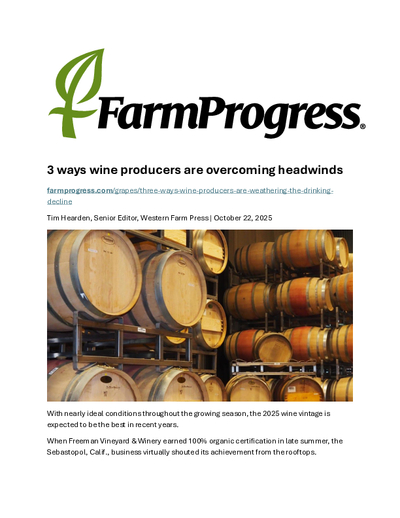
|
FarmProgress
FarmProgress: Freeman Winery Goes 100% Organic and Meet Modern Wine Challenges
In this in-depth article, Senior Editor Tim Hearden highlights how Freeman Vineyard & Winery is embracing organic farming and sustainable practices to navigate shifting wine industry dynamics. Ken and Akiko Freeman share how their recent 100% organic certification formalizes more than 15 years of organic farming, reflecting their deep commitment to environmental stewardship and positioning the winery to connect with a new generation of conscious wine consumers in a changing market. |
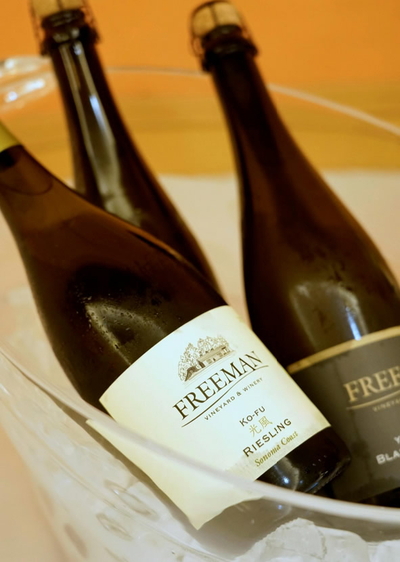
|
The NIkkei Magazine
カリフォルニアワインで奇跡の出会い 日本人2人が新風
感性が酷似、後継者選びの決断を後押しアキコさんはワイン好きだった父から「将来、娘が飲み仲間になるように」と見込まれ、幼少時からワインの香りを嗅がされるなど「英才教育」を受けた。また、祖母が香道に通じる人で、微妙な香りの違いを嗅ぎ分ける術(すべ)を学んだという。一方の赤星さんは「子供の頃から味覚と嗅覚で世界を感じるのが一番の喜びでした」と語る。 そんな赤星さんはフリーマンに参画することになる10年ほど前、同ワイナリーで開かれた日本人ワイン関係者の集まりに参加することがあり、その際にアキコさんのワインを初めて試していた。この時の印象を「おいしくて、鳥肌が立ったのを覚えています」と振り返る。その「鳥肌」がただの驚嘆でなかったことが後に明らかになる。 フリーマンのフラッグシップである「アキコズ・キュヴェ」は毎年、別々の畑や区画のブドウを醸造した多くのワインをアキコさんを含め数人で試飲し、10種類程度に絞り込んだものをブレンドして造られる。この時、各自がブレンドしたものを全員が試し、一同が最良と認めたもののブレンド比率を採用するのだが、2022年までは毎年アキコさんによるブレンドが他のブレンドに競り勝って商品になってきた。 「ところが2023年のブレンドの際、初めて私以外の人のレシピがベストになったのです」とアキコさん。おまけに彼女は赤星さんがブレンドしたそのワインを自分のレシピだと勘違いしたという。それほどまでに2人の感性は酷似していたのだ。この時の経験がアキコさんの後継者選びの決断を後押しする。 「良いものは将来に残ってほしいと純粋に思います。新しい価値を付け加えるのではなく、今ある良いものを磨いていくつもりです」。フリーマンの将来を託された赤星さんに気負いはない。 日本人の美意識「光風」が吹き渡るかフリーマンでは現在、2つの自社畑「グロリア」「ユーキ」での収穫で原料ブドウの70%を賄っているが、最近、新たに入手した畑からの収穫が得られるようになると自社原料比率は95%になり、より明確なキャラクターや方向性を打ち出せるようになる。この第3の畑の名前は「光風」になりそうだとアキコさんが明かす。 フリーマンには、外部から原料ブドウを調達して造った「光風リースリング」という商品があり、光風という言葉をケンさんがいたく気に入っているそうだ。光風とは雨上がりに光を帯びた草木を吹き渡る風のこと。日本人の美意識を感じさせ、またフリーマンのワインの味わいに通じる言葉だと思う。 |
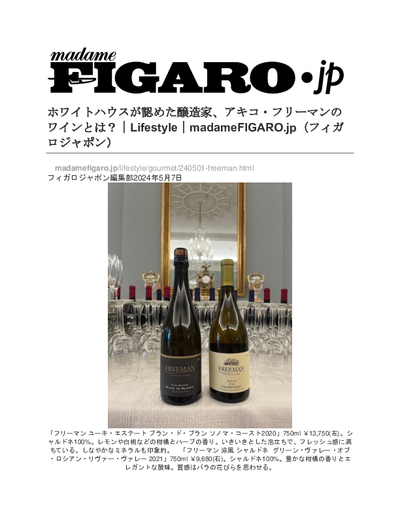
|
Madame FIGARO.jp
ホワイトハウスが認めた醸造家、アキコ・フリーマンのワインとは?
この4月、岸田文雄首相の米国訪問の際、公式昼食会で供されたのがカリフォルニアで日本人の女性醸造家が造るワイン。優雅さと品格に満ちたワインを生み出すアキコ・フリーマンとは?
2024年4月の岸田文雄首相の訪米は記憶に新しいが、実は11日にカマラ・ハリス副大統領が開催した岸田首相を招いてのアメリカ国務省公式昼食会でふるまわれたのが、カリフォルニアで日本人女性醸造家アキコ・フリーマンが造る「フリーマン・ヴィンヤード&ワイナリー」のワインだったのだ。レセプションにはスパークリングのフリーマン ユーキ・エステート ブラン・ド・ブラン ソノマ・コースト2020が登場、コースに合わせてフリーマン 涼風 シャルドネ グリーン・ヴァレー・オブ・ロシアン・リヴァー・ヴァレー 2021やフリーマン アキコズ・キュヴェ ピノ・ノワール ウエストソノマ・コースト 2021がサービスされた。来賓にはアントニー・ブリンケン国務長官やピート・ブティジェッジ運輸大臣などアメリカの政財界の要人たち。そしてそこにはワイナリーオーナーのケン・フリーマンとアキコ・フリーマン夫妻の姿もあった。アキコはこの時の心境をこう語っている。 「私たち夫婦は、このような記念すべき日に参加できて幸せでした。アメリカは日本と素晴らしい関係にあり、私たちが微力ながらその関係に貢献できていると思うと、素晴らしい気分です。多くのビジネス・リーダーや政治家たちと同席できたことは刺激的でしたし、仲間意識や両国の将来に対するヴィジョンを共有できたことは、控えめに言っても感激でした」 ワイナリーの設立は2001年のこと。以前はニューヨークに在住、ケンは銀行員として、アキコはメトロポリタン美術館でエデュケーターとして活躍していた。その後、ケンの転勤でカリフォルニアへ移住。もともとワイン好きだったふたりは、週末にワイナリー巡りを楽しみながら「いつか自分たちのワイナリーを」という夢を抱くようになったのだ。そしてその夢は結実、アキコは"師匠"である醸造家エド・カーツマンの教えを受けながら、実地でブドウ栽培とワイン造りを学んでいった。ケンはアキコをバックアップ、経理や管理などのいっさいを担い、夫婦二人三脚でワイナリーを成長させた。 無名だったアキコのワインが一躍世に踊り出たのは2015年4月のこと。安倍晋三元首相渡米の際に開かれたバラク・オバマ元大統領主催の晩餐会で、フリーマン 涼風 シャルドネ グリーン・ヴァレー・オブ・ロシアン・リヴァー・ヴァレーがサービスされたのだ。日本人醸造家のワインがホワイトハウスで使われたのは初めてのこと。現地のメディアはこぞってこのワインを紹介したが、皆が驚いたのは、その豊かな香りとエレガントな味わいだったのだ。 フリーマン・ヴィンヤード&ワイナリーはソノマでも最も冷涼といわれるロシアン・リヴァー・ヴァレーの西に位置する。ブドウ品種はシャルドネとピノ・ノワールで、果実は豊かでありながらもどこか涼やか、ピュアな酸味との調和が素晴らしい。ピノ・ノワールは知性を感じさせつつもどこかセンシュアル、シャルドネは透明感のある味わいで、煌めくようなフレッシュ感が印象的だ。ワインは造る人の個性も表すというが、美的センスに長け、人との繋がりを大切にする彼女の品格も味に反映されている。これが要人たちの大切なテーブルを彩るのは当然と言っても過言ではないだろう。 アキコのワインは飲む人を確実に幸せにする。彼女はフィガロワインクラブの読者に、こんな言葉を寄せてくれた。 「ワインが1本あるだけで、人は幸せになります。グラスを傾けながら、互いの幸福な未来について話せたら、とても素敵ですね」 |
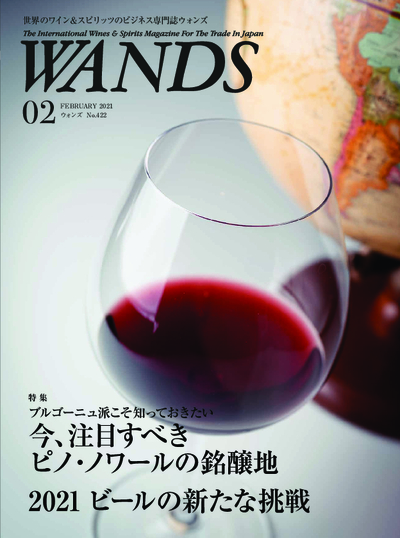
|
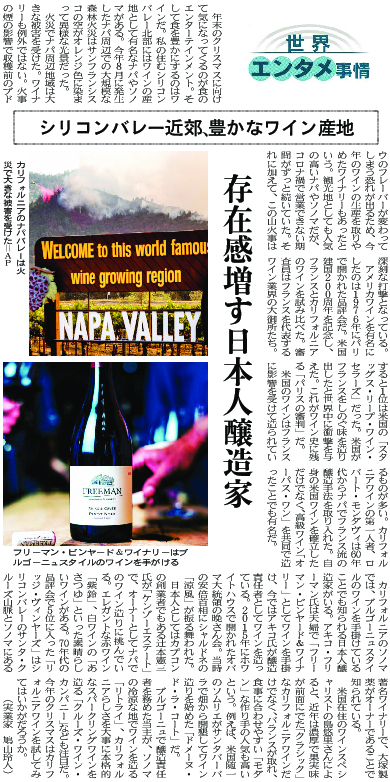
|
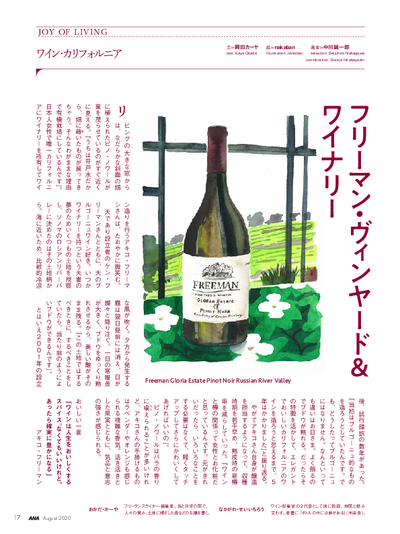
|

